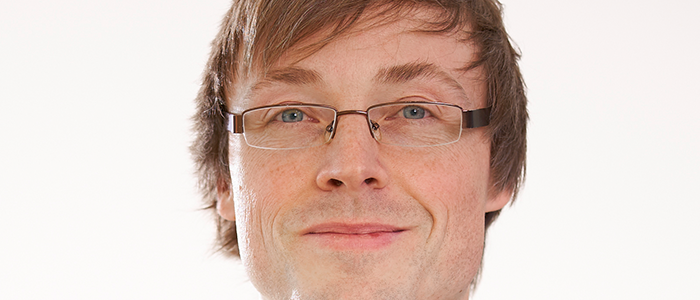Jörg Renkawitz

Institut für Kardiovaskuläre Physiologie und Pathophysiologie
AG Cell- & Mechano-Biology of the Immune System
Biomedizinisches Centrum (BMC)
Ludwig-Maximilians-Universität München
Jörg Renkawitz
... studied biochemistry at LMU Munich and TU Munich, with research stays at the Max-Planck Institute of Biochemistry, the Gene Center, the ETH Zurich and the NIH-US National Cancer Institute. For his PhD research, he investigated the molecular mechanisms of DNA repair in the lab of Prof. Stefan Jentsch at the Max-Planck Institute of Biochemistry. In 2014, he joined the lab of Prof. Michael Sixt at the Institute of Science and Technology (IST) Austria in Vienna for his postdoctoral research to study the principles of cellular navigation through three-dimensional micro-environments. In 2018, Jörg established his research group at the Biomedical Center Munich. His lab investigates cellular principles and mechanisms at the interface of immunology, mechanobiology, molecular biology and cell biology. Jörg’s research has been awarded with the Life Science Research Award Austria (2019), the endowed Peter Hans Hofschneider Professorship for Molecular Medicine (2018), an EMBO postdoctoral fellowship (2015), an ISTFELLOW fellowship (2014), the Junior Research Award of the Max-Planck-Institute of Biochemistry (2013), and a Boehringer-Ingelheim-Fonds PhD fellowship (2009).
He is a principal investigator in the DFG priority programme SPP2332 'Physics of Parasitism' and the DFG Collaborative Research Center CRC914 'Leukocyte trafficking'.
Research synopsis
The immune system consists of an elaborate orchestration of cell types specialised for different molecular processes. Due to the spectrum of these specialisations, immune cells represent an illuminating cellular model to identify general principles in cell biology and mechanical biology. In particular, we employ immune cells to uncover basic principles and mechanisms of cell motility, leukocyte trafficking, macropinocytosis, and host-pathogen interactions. Our interdisciplinary lab combines advanced live-cell microscopy, image analysis, genetic-engineering by CRISPR, custom-made micro-environments such as microfluidics and 3D collagen matrices, and unbiased system-wide approaches such as genome-wide CRISPR screening, transcriptomics, and proteomics. Together, we aim to identify fundamental principles in the cell- and mechanobiology of the immune system and their misregulation in disease.
This study is Project 16 of the SPP 2332 PoP.






